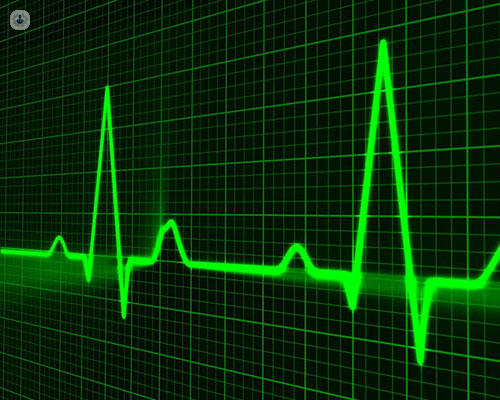Why is electrophysiology important in cardiology?
Autore:Top Doctors recently spoke to leading Leicester-based consultant cardiologist and electrophysiologist, Dr Shui Hao Chin, who, in this article here, explains what cardiac electrophysiology is, and tells us why it is so important within the field of cardiology today.

What is cardiac electrophysiology?
The heart has specialised tissue that provides electrical currents that allows the heart to beat in a regular and coordinated manner, contributing to a normal heart rhythm. Cardiac electrophysiology is the scientific study of the electrical properties of these heart tissues, and allows physicians to develop an understanding of the mechanisms underpinning various heat rhythm abnormalities.
Why is electrophysiology important in cardiology?
Electrophysiology is a highly specialised specialty within cardiology that diagnoses and treats various other heart rhythm disorders, such as ectopics (commonly known as missed or skipped beats), atrial fibrillation, supraventricular tachycardias (SVT), ventricular tachycardias (VT) or bradycardia (slow heart rate). Patients who need electrophysiology referral are typically those suffering from palpitations, dizziness, and unexplained blackouts.
What are the types of procedures that are done in electrophysiology?
There are many diagnostic and therapeutic procedures performed in electrophysiology. These include:
- Arrangement for Holter fitting to establish diagnosis
- Catheter ablation of different arrhythmias
- Pacemaker implantation
- Insertion of implantable loop recorder
- Implantable cardioverter-defibrillators (ICD) insertion
How is an electrophysiology study performed?
It is done using local anaesthesia, and typically lasts up to two hours. Commonly, it is performed as a day case. It involves using X-rays to guide placement of wires (catheters) from the top of the leg to the heart, and once the wires are in place within the different heart chambers, a stimulation study is performed to induce and diagnose potential abnormal heart rhythm. Once we know where the abnormal electrical signal arises from, we can then perform radiofrequency ablation, which involves cauterising (or freezing) the heart tissue that contributes to the abnormal heart rhythm.
What are the potential risks and complications of electrophysiology procedures?
These are very safe procedures and are almost always performed with sedatives (general anaesthesia is optional). The overall risk is one per cent and potential complications include bleeding, bruising, damage to blood vessels (one in every 200), heart attack or stroke (1:1000 risk), damage to natural pacemaker site requiring pacemaker implantation (one per cent), or bleeding around the heart requiring drainage (one in every 500).
Dr Shui Hao Chin is an extremely well-regarded consultant cardiologist and electrophysiologist. Book a consultation with him today via his Top Doctors profile.


